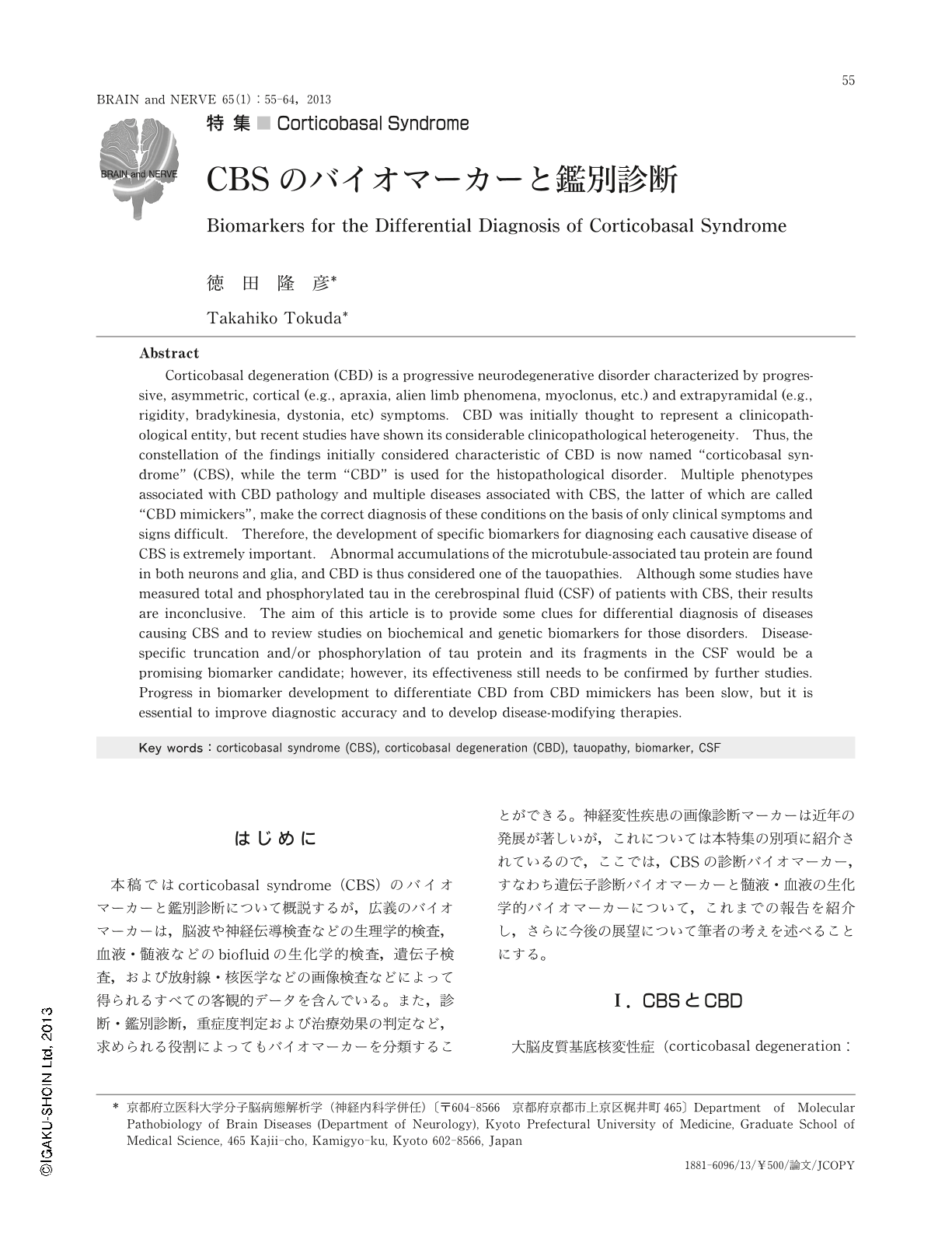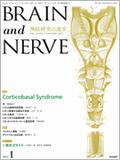Japanese
English
- 有料閲覧
- Abstract 文献概要
- 1ページ目 Look Inside
- 参考文献 Reference
はじめに
本稿ではcorticobasal syndrome(CBS)のバイオマーカーと鑑別診断について概説するが,広義のバイオマーカーは,脳波や神経伝導検査などの生理学的検査,血液・髄液などのbiofluidの生化学的検査,遺伝子検査,および放射線・核医学などの画像検査などによって得られるすべての客観的データを含んでいる。また,診断・鑑別診断,重症度判定および治療効果の判定など,求められる役割によってもバイオマーカーを分類することができる。神経変性疾患の画像診断マーカーは近年の発展が著しいが,これについては本特集の別項に紹介されているので,ここでは,CBSの診断バイオマーカー,すなわち遺伝子診断バイオマーカーと髄液・血液の生化学的バイオマーカーについて,これまでの報告を紹介し,さらに今後の展望について筆者の考えを述べることにする。
Abstract
Corticobasal degeneration (CBD) is a progressive neurodegenerative disorder characterized by progressive, asymmetric, cortical (e.g., apraxia, alien limb phenomena, myoclonus, etc.) and extrapyramidal (e.g., rigidity, bradykinesia, dystonia, etc) symptoms. CBD was initially thought to represent a clinicopathological entity, but recent studies have shown its considerable clinicopathological heterogeneity. Thus, the constellation of the findings initially considered characteristic of CBD is now named "corticobasal syndrome" (CBS), while the term "CBD" is used for the histopathological disorder. Multiple phenotypes associated with CBD pathology and multiple diseases associated with CBS, the latter of which are called "CBD mimickers", make the correct diagnosis of these conditions on the basis of only clinical symptoms and signs difficult. Therefore, the development of specific biomarkers for diagnosing each causative disease of CBS is extremely important. Abnormal accumulations of the microtubule-associated tau protein are found in both neurons and glia, and CBD is thus considered one of the tauopathies. Although some studies have measured total and phosphorylated tau in the cerebrospinal fluid (CSF) of patients with CBS, their results are inconclusive. The aim of this article is to provide some clues for differential diagnosis of diseases causing CBS and to review studies on biochemical and genetic biomarkers for those disorders. Disease-specific truncation and/or phosphorylation of tau protein and its fragments in the CSF would be a promising biomarker candidate; however, its effectiveness still needs to be confirmed by further studies. Progress in biomarker development to differentiate CBD from CBD mimickers has been slow, but it is essential to improve diagnostic accuracy and to develop disease-modifying therapies.

Copyright © 2013, Igaku-Shoin Ltd. All rights reserved.


